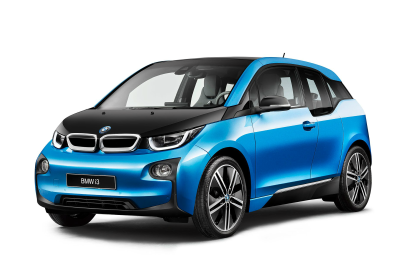
With plans to ban all new diesel and petrol cars by 2040, are electric cars the better option for the environment? Since the release in the news last year about this courageous plan from the Government, manufacturers have gone full steam ahead with producing the best quality electric and hybrid models possible.
We’ve all heard the major cons of fossil fuels and how “bad” in general petrol and diesel engines are, and then, on the other hand, how “good” an electric or hybrid engine is. However, this isn’t necessarily the case.Zero emissions, but only on the roads As soon as an electric car rides from the showroom, it is emitting no tailpipe emissions, but it will still produce pollution from tyre and brake dust. Although, the real killer that’s impacting the environment occurs before the EV has left the factory floor. A report by the Fraunhofer Institute for Building Physics revealed that it takes twice the amount of energy to build an electric car as a conventional vehicle.
What’s the main problem? Well, it’s the battery. A report completed by IVL Swedish Environmental Research Institute found that battery production produces 150-200kg of carbon dioxide equivalent per kilowatt-hour (kWh) of a produced battery.
What’s the main problem? Well, it’s the battery. A report completed by IVL Swedish Environmental Research Institute found that battery production produces 150-200kg of carbon dioxide equivalent per kilowatt-hour (kWh) of a produced battery.
 The issues don’t just stop there, the other concern is the materials used in lithium batteries, which tend to be rare metals that exist in small quantities and hard-to-reach places. Lithium and cobalt are vital ingredients in battery production, both have the potential to slow the growth of the electric car sector. With both supplies being limited, this means mining companies will have to increase their footprint in search of new deposits.
The issues don’t just stop there, the other concern is the materials used in lithium batteries, which tend to be rare metals that exist in small quantities and hard-to-reach places. Lithium and cobalt are vital ingredients in battery production, both have the potential to slow the growth of the electric car sector. With both supplies being limited, this means mining companies will have to increase their footprint in search of new deposits.Francis Condon, an energy and mining analyst at RobecoSAM, warns that the hunt for raw materials has the potential to be an environmental disaster.
"We're starting to see new sources being found and smaller mining companies and non-mining companies getting involved. Some of these opportunities are arising where environmental codes are not as strong and social settings not as protective or inclusive. It's a combination of risks."
"We're starting to see new sources being found and smaller mining companies and non-mining companies getting involved. Some of these opportunities are arising where environmental codes are not as strong and social settings not as protective or inclusive. It's a combination of risks."
Battery sustainability In the long-term, the material used in battery production can cause a serious problem; this is down to how difficult they are to recycle, therefore not being very sustainable. On the other hand, more than 90% of batteries used in conventional cars are recycled, versus less than 5% of lithium-ion batteries.
"One of the challenges of making battery recycling economically viable is the quantity of battery material that is needed to keep utilisation rates of recycling facilities sufficiently high," said analysts at Morgan Stanley, in the Financial Times.
"The risk, therefore, is there may not be the necessary infrastructure in place in time for the first significant wave of EV batteries to reach the end of life."
"One of the challenges of making battery recycling economically viable is the quantity of battery material that is needed to keep utilisation rates of recycling facilities sufficiently high," said analysts at Morgan Stanley, in the Financial Times.
"The risk, therefore, is there may not be the necessary infrastructure in place in time for the first significant wave of EV batteries to reach the end of life."
 What about the source? Well, obviously with the surge of popularity with electric cars, this means a constant demand for energy needs to be met. An electric car is only as clean as the power it uses to keep moving, and herein lies the problem.
What about the source? Well, obviously with the surge of popularity with electric cars, this means a constant demand for energy needs to be met. An electric car is only as clean as the power it uses to keep moving, and herein lies the problem.To this day, the UK produces most of its electricity by burning natural gas and coal which accounts for 29% of the country’s greenhouse emissions.
The National Grid estimates that the number of plug-in cars and vans could top 9m by 2030 or between 7m and 26m by 2050, up from around 90,000 today. Putting aside the concerns over electric car production for a moment, that could put a severe strain on the charging network, not to mention the electricity supply.
However, to rectify this pressing issue, the National Grid predicts that solar power will have the largest share of electricity generation by 2050 and that electric cars could have the opportunity to return electricity to the grid.
To conclude, in the short-term, the future is less rosy. In 2016, the Energy and Climate Change Committee warned that the UK will fail to achieve its 2020 renewable energy targets to provide 15% of its electricity, heat and transport fuels from renewable sources. This shows how both types of engines (fossil fuel vs. electric) have their pros and cons, which both need to be considered.
For more CarCliq guides click here.
However, to rectify this pressing issue, the National Grid predicts that solar power will have the largest share of electricity generation by 2050 and that electric cars could have the opportunity to return electricity to the grid.
To conclude, in the short-term, the future is less rosy. In 2016, the Energy and Climate Change Committee warned that the UK will fail to achieve its 2020 renewable energy targets to provide 15% of its electricity, heat and transport fuels from renewable sources. This shows how both types of engines (fossil fuel vs. electric) have their pros and cons, which both need to be considered.
For more CarCliq guides click here.